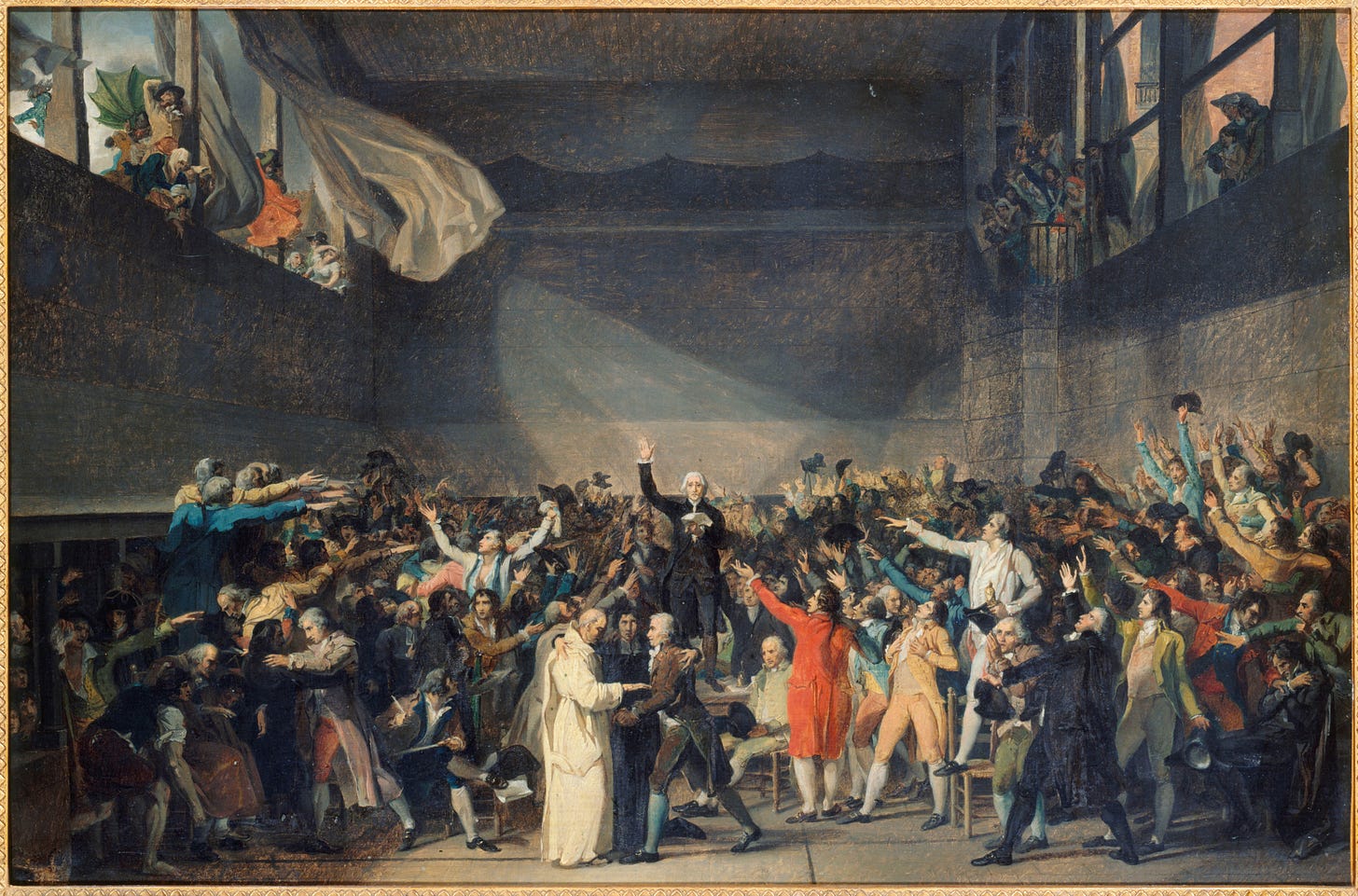“What could be more absurd than to suppose the same ignorant and common people you despise, when taken one by one, are of any greater consequence when taken together?”
— Cicero, Tusculan Disputations, 5.36
A paid subscriber canceled her subscription this week for two reasons:
“You’ve strayed into misanthropy and only quote philosophers who share your disdain.”
“(You) never consider the wisdom of good, average people and our capacity for collective wise action.”
You’ll have to decide, dear reader, if discussions of mass stupidity, the mob, and their excellence opposition — when countervailed by belief in human potential — constitute misanthropy.
But if I’m going to lose money over something like the wisdom of crowds, I should at least be explicit about my limited conclusions on the subject.
1+1= -1?
“Human affairs are not so happily ordered that the better things are pleasing to the many; a proof of the worst choice is the crowd.”
— Seneca, On the Happy Life, 2.1
The argument is this: aggregated humans are wiser than the sum of their parts.
A large group will get closer to the truth, on average, than error-prone individuals. This is a pretty incredible claim, akin to alchemy. Bring some rocks and motor oil together and out pops gold!
But a body of scientific evidence demonstrates this effect. Groups do tend to perform better than individuals.
But how? Where do their errors and biases go when grouped, and why don’t we see an increased wisdom capacity in other collective human actions? Shouldn’t mass riots be paragons of good decision-making too?
One of my favorite studies of this question brought the group down to its smallest possible size — two humans. Would these pairings help or hinder question answering accuracy?
The researchers concluded “(opinion sharing) and group deliberation (both) affected performance in the same direction, improving accuracy when individual accuracy was better than chance, but impairing it when individual accuracy was below chance.”
In other words, grouping magnifies whatever baseline tendencies the individuals have. The deluded got more deluded and the correct vectored toward even more right answers.
A big problem the researchers noted was that pairs of mistaken individuals pushed themselves into increased confidence in their errors. When you hear someone echo your wrong thought, it sounds more plausible.
The Wisdom of Crowds
I occasionally hear “the wisdom of the crowd effect,” called on like a divine savior. Aggregate and yee shall be saved!
But the man who popularized the idea emphasized the limitations of grouping as well as its potential .In his 2004 book, The Wisdom of Crowds, James Surowiecki wrote:
"A crowd is wiser than any single one of its members when it acts independently and with diverse perspectives."
He explains that “wise crowds,” are capable of outperforming individual experts when they possess the following traits:
Opinion diversity
Methods of aggregating those diverse opinions
Member Independence/Sovereignty
Decentralization
I would suggest the possibility that another factor would help — that all members have skin in the game.
For these reasons, we see betting markets make better predictions than pundits and experts when predicting election outcomes, climate-related risks, and federal rate cuts.
It’s truly impressive.
The Good, The Bad, And the Ugly
There’s great potential for wise groups to make better collective decisions, but this doesn’t mean groups are inherently wiser than individuals.
Intelligent and farsighted people who can speak their minds will probably do great things together.
Adding great people to crowds of mediocrities should pull performance higher.
Fools will aggregate to form foolish groups, and reinforce intra-group certainty in mistaken notions.
How many human groups meet Surowiecki’s requirements for wise aggregation effects?
At work, how many speak their mind when it contradicts a boss?
Are universities the havens of rebel thinkers and they once were, or have the controversial minds been driven out?
Is there thought diversity in primary elections?
How much of modern media is just an echo chamber?
How many thinkers are free of domineering spouses, faith leaders, and political ingroups who will ostracize or punish them if they step out of line?
I am happy to agree that wise crowds have great potential, but like so many of those pessimistic philosophers my unsubscriber mentioned, I don’t see aggregation effects savings us from that much foolishness.
The mob is as often a swampy bog pulling individuals into mistakes as an elevator of great ideas and solutions.
If we want a better humanity, the solution isn’t more aggregation, but better individual humans embedded in societies and institutions that teach them about their biases and mistaken notions and push them to improve.
I doubt this will happen in the short term, but I’m actually bullish on the long-term possibilities for better societies.
So maybe I’m just an optimistic humanist at heart. :)
Thanks for reading Socratic State of Mind.
If you liked this article, please like and share it, which helps more readers find my work.





Excellent points, Andrew. I've always questioned the wisdom of some groups, despite the evidence that many groups (i.e., "group" projects in school or work) are inefficient and counterproductive. "We're stronger as a team," is only true if the team members have some strength within them individually.
Nailed it!! A while back I too wrote on this topic and I refer to it as the Wisdom IN Crowds. Simply put, the crowd works under very controlled circumstances, cultures, and needs. Like you said, otherwise it's just Alchemy. I see this all the time in data science where they think they found a signal but they just found the Law of Large Numbers. The fact still remains that there is wisdom in crowds, but you have to be discerning and intentional on how you look for it. Heres my writing on the topic that supports your findings: https://www.polymathicbeing.com/p/rethink-the-wisdom-of-crowds